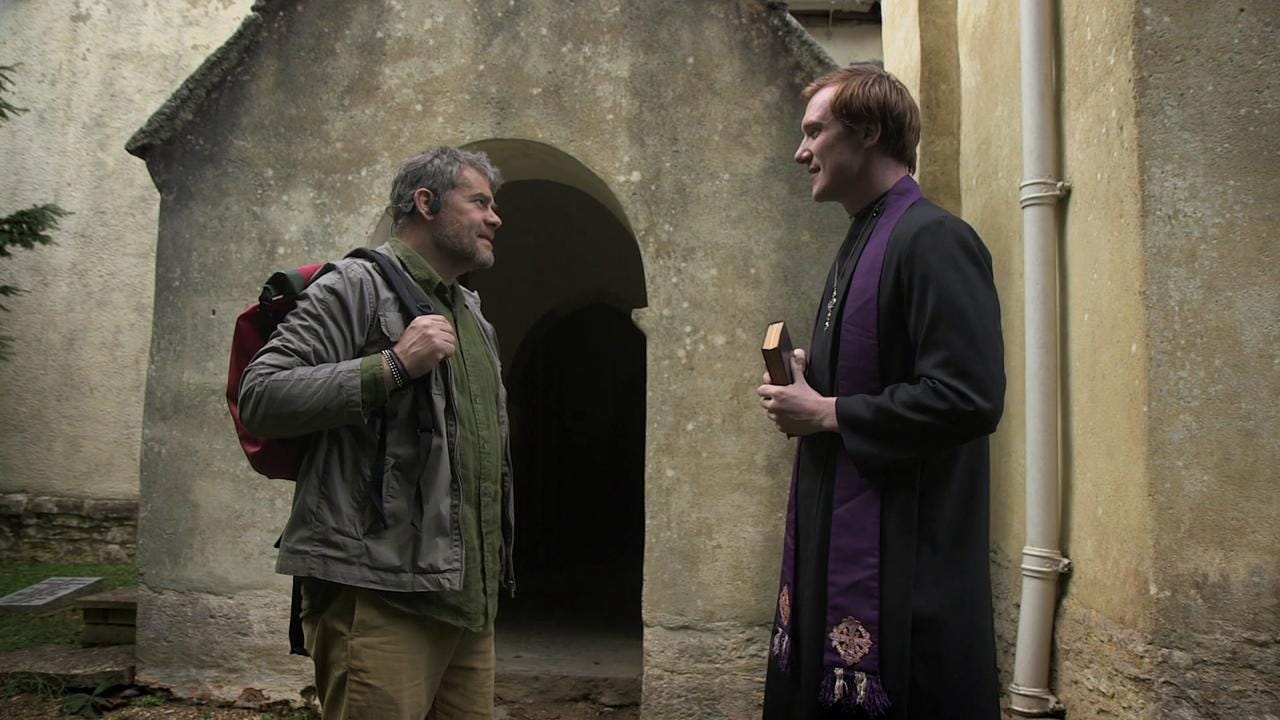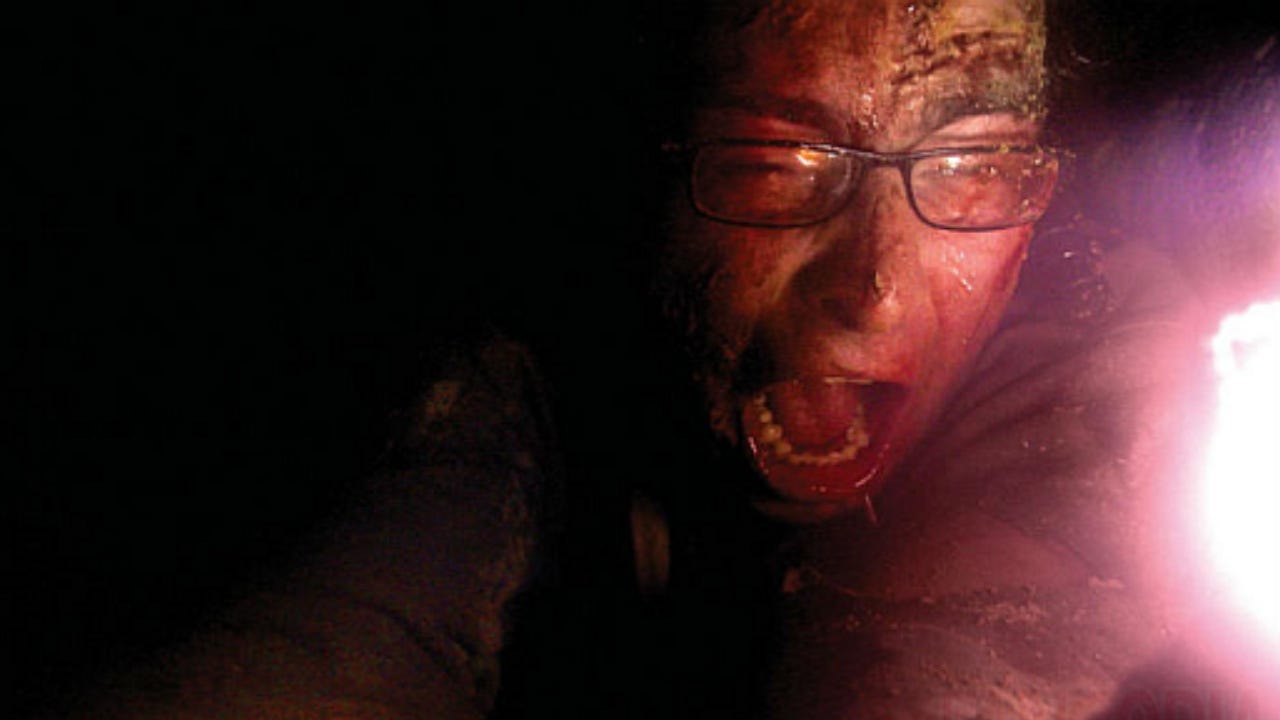The Borderlands was screened at the Darkness in the Fields film festival on the 23rd of March at Derby Quad Cinema. It will be released on special edition Blu-ray through Second Sight Films on the 8th of April.
Horror only works if we care about the characters. Don’t get me wrong, there are plenty of 90-minute slasher films that prioritise imaginative kills over character, and these are entertaining enough, but the best horror films make you care before the scares start. We want Regan (Linda Blair) to be saved in The Exorcist (William Friedkin, 1973); we empathise with Dani (Florence Pugh) in Midsommar (Ari Aster, 2019).
Despite some pre- and post-production woes, The Borderlands has garnered its cult following for understanding the importance of character. When Sean Hogan was approached to do an uncredited rewrite after a poor response to the initial cut, he said that the relationship between Deacon (Gordon Kennedy) and Gray (Robin Hill) was a highlight and worked to keep this intact while punching-up some of the weaker aspects.
Deacon is an investigator for the Vatican, tasked with looking into claims of miraculous occurrences and debunking them. Gray is a non-believer, tasked with providing the technical equipment needed for the job and documenting the investigation. It’s a strong start – a found footage film that not only justifies its use of the format but also uses head-mounted cameras to avoid the question of why the characters kept filming.
They are investigating a remote church in England, where the sounds of children crying, and choral harmonies have been attributed to God by priest Father Crellick (Luke Neal). It hardly counts as a spoiler to say that this is not the case.
But writer/director Elliot Goldner takes his time building to the reveal, instead focusing almost half of the running time on the banter between Deacon and Gray. Kennedy is excellent as the tortured investigator. He’s harsh and embittered, struggling to come to terms with a previous job. To counter this, Hill brings a lightness to Gray – a man who just wants to do the job, get paid and go home. Their initial clashes are very funny but as they soften and grow to like each other, there’s a real comradery that gives The Borderlands its beating heart.
Working with a low budget, Goldnor doesn’t overextend himself with the scares. Jump scares are mainly avoided, meaning that the film becomes a 90-minute experiment in building tension. There are the occasional clever scares – Gray’s name appearing on a headstone for a moment – but these provide almost no outlet for the tension, meaning that the audience is wound tight when the final, claustrophobic sequence starts.
This focus on tension, rather than the dwindling returns of constant scares, places The Borderlands in the same leagues as British ghost story classics such as Ghostwatch (Lesley Manning, 1992) and Whistle and I’ll Come to You (Jonathan Miller, 1968), while the use of analogue sound equipment in the church harks back to The Stone Tape (Peter Sasdy, 1972).
When Deacon and Gray enter the church for the final time, things are at fever pitch and again Goldnor avoids the easy jump scare. Instead, The Borderlands ends on one of the most downbeat, uncomfortable moments in recent horror. Every character beat, every hint at the horrors within the church, is brought to fruition in a way that offers little closure but works so perfectly within the world that has been developed.
Director: Elliot Goldner
Writers: Elliot Goldner, Sean Hogan (uncredited)
Cast: Gordon Kennedy, Robin Hill, Aidan McArdle, Luke Neal







